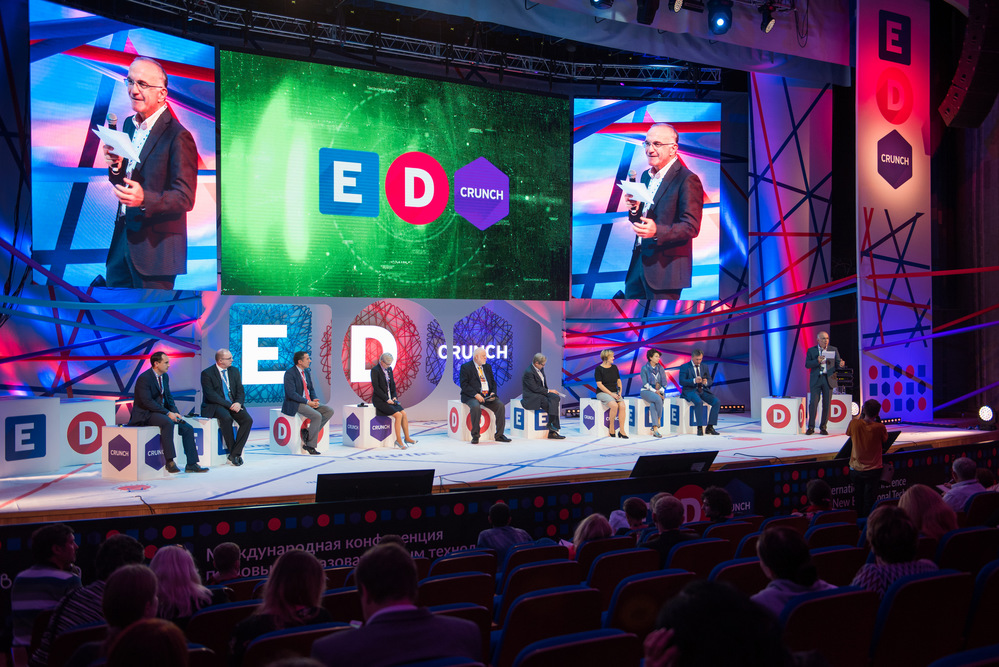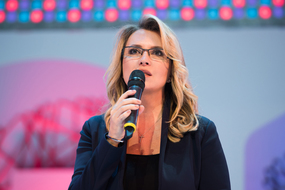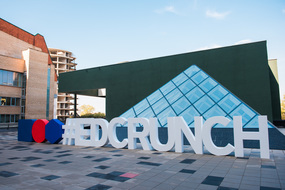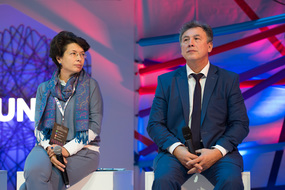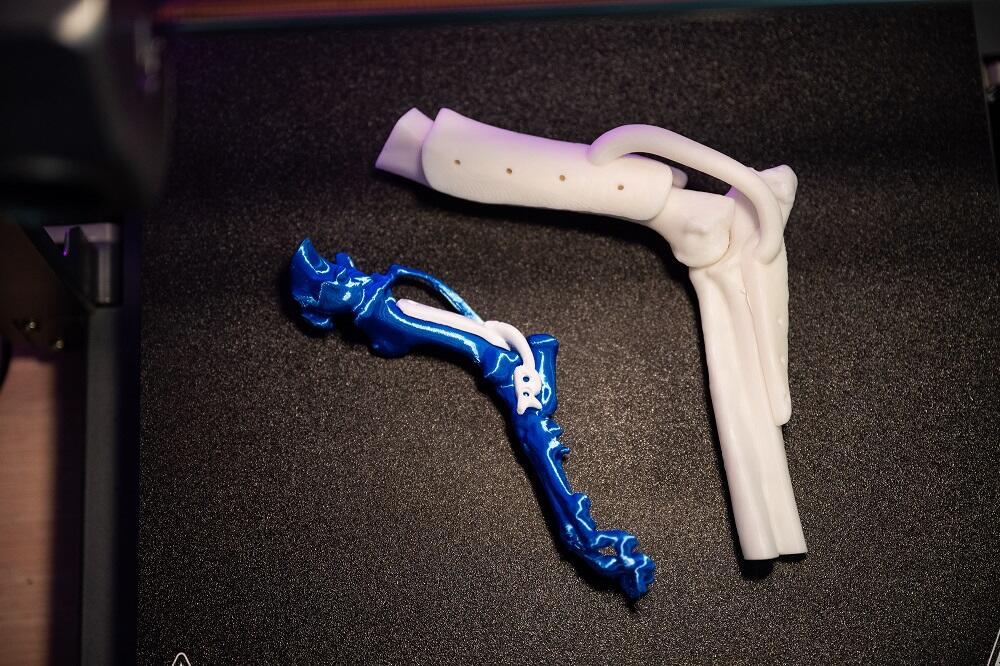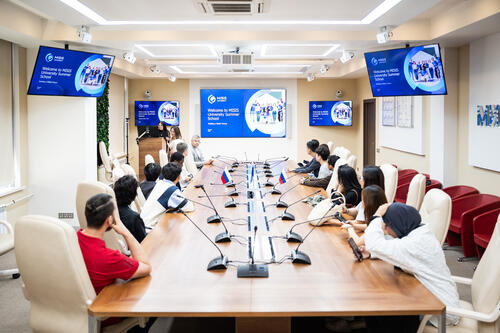On September 12th & 13th, 2016, during the third international #EdCrunch conference, the world`s leading experts in the fields of education and new technologies discussed how to transform modern education and whether online tools can completely replace traditional teaching methods.
Wikipedia Founder Jimmy Wales, who delivered a lecture on “The role of technologies in education and the transformation of education under the influence of technologies” said: “Having conferences like #EdCrunch are incredibly important, as they sort of encourage teachers to open their minds and think in new ways, and more importantly they encourage administrators to open their minds and think in new ways that allow teachers to innovate”.
#EdCrunch, which is one of the world`s largest annual conferences on new educational technologies, was held through the support of the Ministry of Education & Science of the Russian Federation. Veniamin Kaganov and Lyudmila Ogorodova, Deputy Ministers, and heads of the Ministry`s department, actively participated in the conference.
The key topic of this year`s conference was blended learning, which is a combination of classical forms of education with the more modern technologies of e-learning. In the modern world innovations affect all spheres of the educational process. Hence why #EdCrunch-2016`s separate tracks were dedicated to preschool education, corporate training, and supplementary vocational education.
Alevtina Chernikova, Rector of NUST MISIS, posited, “The conference`s main goal is the promotion of new educational technologies, which can be used by teachers. A teacher, in the broadest sense of the word, is someone who teaches us at every stage of our life — from kindergarten teachers and teachers at school to university lecturers and corporate trainers. One of the global changes that has happened in recent decades is the necessity to continuously gain knowledge. Technology changes very fast, knowledge gets out of date, and thus education becomes a lifeline to stay afloat.”
All the participants noted that the changes coming to education through the advent of new technologies are irreversible. However, some still vehemently believe that nothing can replace or replicate the influence of teachers.
“Some aspects of education will remain the same. Interestingly, there is something very human and important about the relationship between a teacher and student where someone human in the same room recognizes the difficulty you are having and realizes the way how to correct and help you to move forward, or you could be lost for a long time if you are just on your own trying to figure something out”, noted Jimmy Wales.
The main goal of schools, universities, and kindergartens is not simply to provide a skill-set or knowledge, but to teach students how to think, argue, and form a worldview.
According to Dr William Rankin, the head of Unfold learning and the former Director of Learning on the global education team at Apple Inc., “If students learn with the devices, it will help not only with their learning but will show them how the devices can help with learning; if devices become a means of education for them, they will also learn to be responsible using these devices”.
Dr Marjo Kyllönen, the Education Manager at the General Education division in Helsinki, talked about one of the world`s most progressive educational systems, which is Finnish and holds the leading position in PISA, the international assessment ranking educational quality. She noted, “The world is becoming more complex, unpredictable, and diversified. If an educational system encourages the general welfare then it helps to ensure the future of that nation. So, our goal is to build an educational system in a way for our children to have a sense of belonging to a community, and to build an understanding [of the world] that they can visualize themselves in and bring changes to. Digital technologies open these opportunities for us: they help children to customize the learning process and cooperate with different people and teachers”.
In 2016, the Rybakov Fund, which supports education and entrepreneurship development in Russia, became one of the organizers of #EdCrunch .
“A social educational environment is a common good, and it should be accessible to everyone. Today we’re cooperating to understand on what to focus further to develop such an environment. To do this students in the educational community need to productively cooperate, and this is a skill that needs to be trained and honed. To better your children from kindergarten to university and to master the ability to cooperate and interact will help to focus on the talents of an individual”, commented Igor Rybakov, Founder of “The Rybakov Fund”.
More details about the forum are on its official website . The next #EdCrunch conference will be held in September, 2017.
